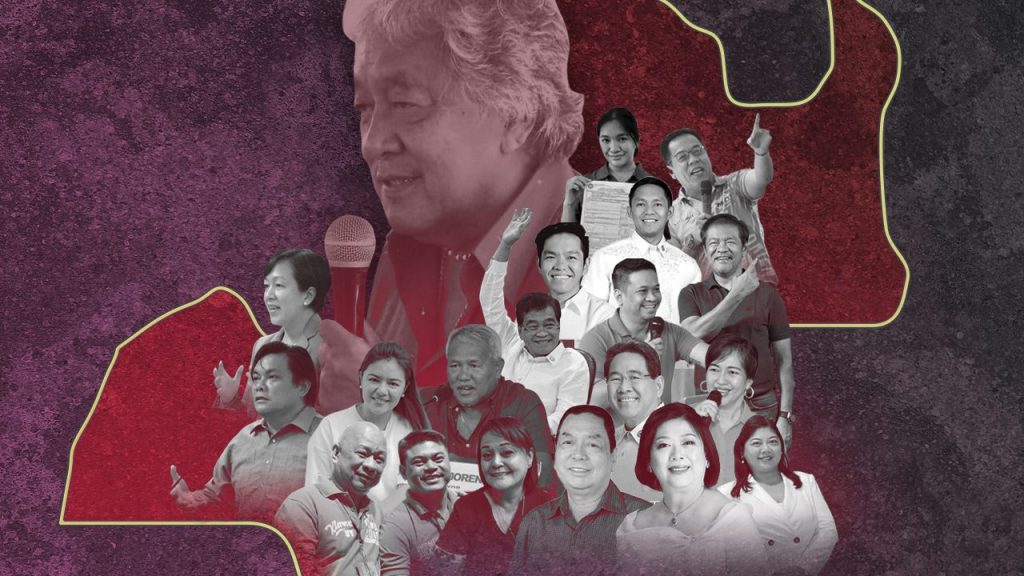The Influence of Political Dynasties on Governance
In the ever-evolving landscape of politics, the role of political dynasties in governance has been a subject of extensive debate and discussion. This article delves into the intricate dynamics of political dynasties and their profound influence on the governance of nations. We explore how these familial legacies impact decision-making, public policies, and the overall democratic process.
Unveiling the Dominance
What are Political Dynasties?
Political dynasties refer to families or clans maintaining a political stronghold over generations. These families often see a continuous lineage of politicians who ascend to power and maintain their influence through strategic alliances, name recognition, and a well-established voter base. Such dynasties can be found across the globe, from the Kennedys in the United States to the Nehru-Gandhi family in India.
The Pervasiveness of Political Dynasties
The prevalence of political dynasties is a striking feature of contemporary politics. In many democracies, it’s not uncommon to witness the same surnames appearing on ballots for various offices year after year. This phenomenon raises questions about the health of democratic systems and the fairness of electoral processes.
The Impact on Governance
The Dynamics of Decision-Making
One of the most significant ways political dynasties influence governance is their involvement in decision-making. When a family holds a long-standing political presence, they often have a considerable say in the policies and legislation. This can lead to a concentration of power within a few influential families, potentially sidelining other voices in the political arena.
The Continuity of Policies
Political dynasties often lead to a continuity of policies. When a new dynasty member comes to power, they may choose to continue the policies and agendas of their predecessors. While this can provide stability, it can also stifle innovation and hinder the implementation of new ideas.
The Challenge to Meritocracy
One of the primary concerns surrounding political dynasties is their challenge to meritocracy. In a true democracy, individuals should rise to power based on their qualifications, ideas, and people’s will. However, when political power is concentrated within a few families, meritocracy can take a back seat, and deserving candidates may need to be noticed.
The Public’s Perspective
Voter Loyalty and Name Recognition
Political dynasties often benefit from voter loyalty and name recognition. Voters who have supported a particular family for generations may continue to do so out of familiarity and trust. This can make it challenging for new candidates to enter the political scene, even if they possess innovative ideas and strong qualifications.
Accountability and Transparency
The presence of political dynasties can also impact accountability and transparency in governance. When a family maintains a grip on power, they may face fewer checks and balances, leading to potential corruption and a lack of transparency in decision-making processes.

Global Perspectives
Variations Across Nations
The influence of political dynasties varies significantly from one nation to another. In some countries, political dynasties are deeply entrenched and play a pivotal role in governance. Contrastingly, other nations have implemented measures to curb the dominance of dynastic politics, promoting a more diverse and competitive political landscape.
International Implications
The influence of political dynasties extends beyond national borders. It can impact international relations, as foreign nations must navigate their interactions with established political families. These families may have long-standing alliances or historical ties that influence foreign policy decisions.
The Way Forward
Promoting Fairness and Inclusivity
To mitigate the potentially negative effects of political dynasties on governance, promoting fairness and inclusivity in the political process is crucial. This can be achieved through campaign finance reforms, term limits, and efforts to increase voter awareness about evaluating candidates based on their merits.
Encouraging Civic Engagement
Civic engagement plays a vital role in countering the dominance of political dynasties. When citizens actively participate in the political process, they can hold politicians accountable and help break the cycle of dynastic rule.
Strengthening Democratic Institutions
Strong democratic institutions are essential for ensuring that political power is not concentrated within a few families. Robust checks and balances, an independent judiciary, and a free press can all contribute to a healthier and more accountable political system.
In conclusion, the influence of political dynasties on governance is a complex and multifaceted issue that warrants careful consideration. While these dynasties can provide stability, they also challenge democracy, meritocracy, and transparency. Nations need to balance respecting political legacies and promoting a fair and inclusive political landscape.

